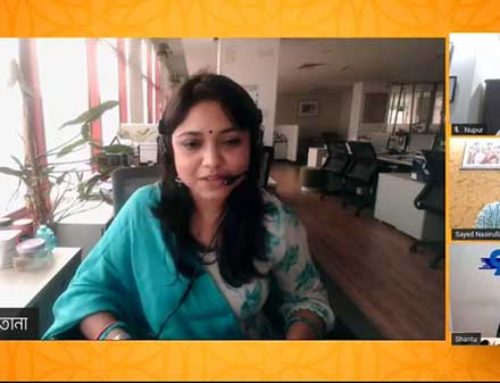Introduction of the Organization:
About RDRS
Formerly the Bangladesh field program of the Geneva-based Lutheran World Federation/Department for World Service, RDRS was established in 1972, in response to the massive refugee outflow during the war of liberation of Bangladesh. After providing basic relief to refugees in the camps across the border in India (as Cooch Behar Refugee Service), following liberation the organization returned with the refugees and focused operations on the northwest region (initially as Rangpur Dinajpur Rehabilitation Service, then becoming Rural Service, reflecting the shift to development in the late 1970s).
At localization, RDRS became simply RDRS Bangladesh as a Bangladeshi national NGO in 1997. Since inception, RDRS has grown and evolved substantially and this process has continued after localization. Sectoral development gave way to integrated development, then empowerment and civil rights were progressively added. RDRS is now providing its development support to over 3.4 million people in 28 districts in Bangladesh. The organization is governed by a Board of Trustees comprising leading actors from the humanitarian sector in Bangladesh.
Programmatic Interventions in Response to COVID-19:
Relief/Food Package Distribution
Till July 2020, RDRS distributed 24,411,353 packets relief/food package among 6,23,546 families. The monetary value of these items is approximately BDT 15, 44, 52,642 (Fifteen crore forty-four lakh fifty two thousand six hundred forty-two).
Other Supports Provided
In this period, a total of 4,536 family received hygiene kits and 150 PPE (Personal Protection Equipment) amounting of BDT 20, 57,706 (twenty lakh fifty-seven thousand seven hundred six). Here are the details:
- A total of 4,536 family received the hygiene kits which includes the following items;
- Mask
- Soap
iii. Detergent
- Water bucket
- A total of 150 PPE distributed which includes apron, mask and hand gloves to the local government offices.
- 8 Spray machines and 16 KG bleaching powder distributed for disinfection.
- 17 CBOs received cash support.
- RDRS worked closely with the govt. health departments particularly in TB program and carried out agriculture related activities during covid-19 pandemic. RDRS distributed varieties of seeds and sapling among the program participants in order to keep the agriculture sector uninterrupted.
Awareness Raising Program
RDRS took mass awareness campaign through miking and poster distribution in all its working areas. Radio Chilmari (RDRS initiated community radio) is continuing to broadcast COVID-19 awareness raising messages from the beginning. The radio is also sharing the important messages through its social media page.
Future Outlook and Recommendations:
The northern region has been severely affected by flood. People of this area are now fighting to both COVID-19 and flood. It has become a challenge to maintain precautions for COVID. RDRS Bangladesh is continuing its support to the people affected with both COVID and Flood. RDRS will take future initiatives based on the situation and its fund availability.
There are many challenges we may have to face in future on the socio-economic ground. But two challenges need to be addressed carefully –
1) Economic crisis: apart from the grassroots poor people, the low-income people and the seasonal/floating earners have also become economically vulnerable. They have lost their source of income. This economic vulnerability may lead this group to poverty. Such fallout in poverty from economic crisis has long-term impact in national economy and social life.
2) Education: Since 17 March, all the educational institutes in the country have remained closed. The school closures have long-term impacts on social and economic issues such as school dropouts, digital divide, food insecurity and malnutrition, childcare, as well as disability services. As the COVID crisis prolongs so the school closers. The pandemic may cause the higher rate of the child labors, child marriages and dropouts of the learners. Many might never come to school ever again. The learners are suffering from loss in learning opportunities and psychological challenges. So these issues should be addressed with focus.





